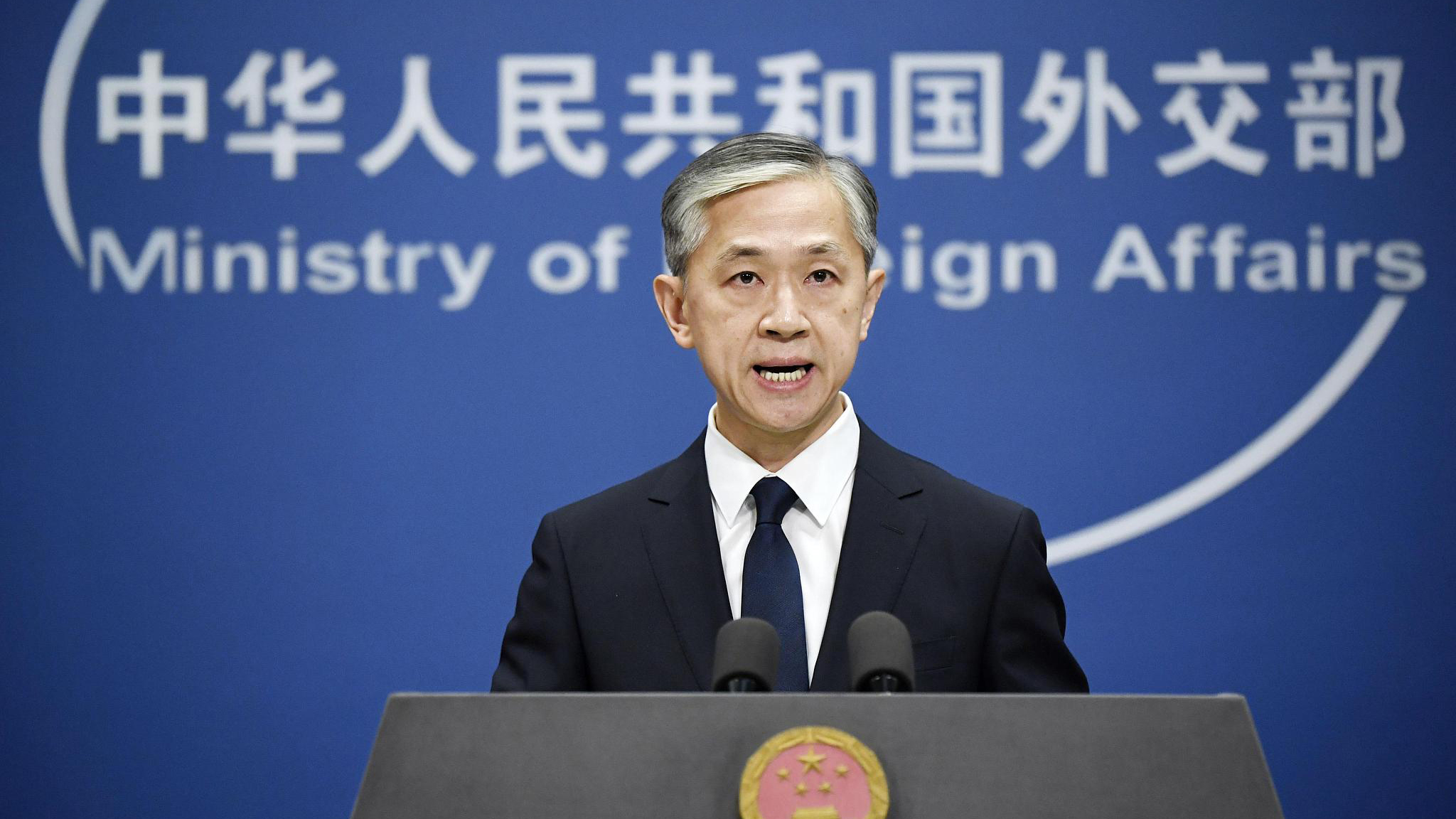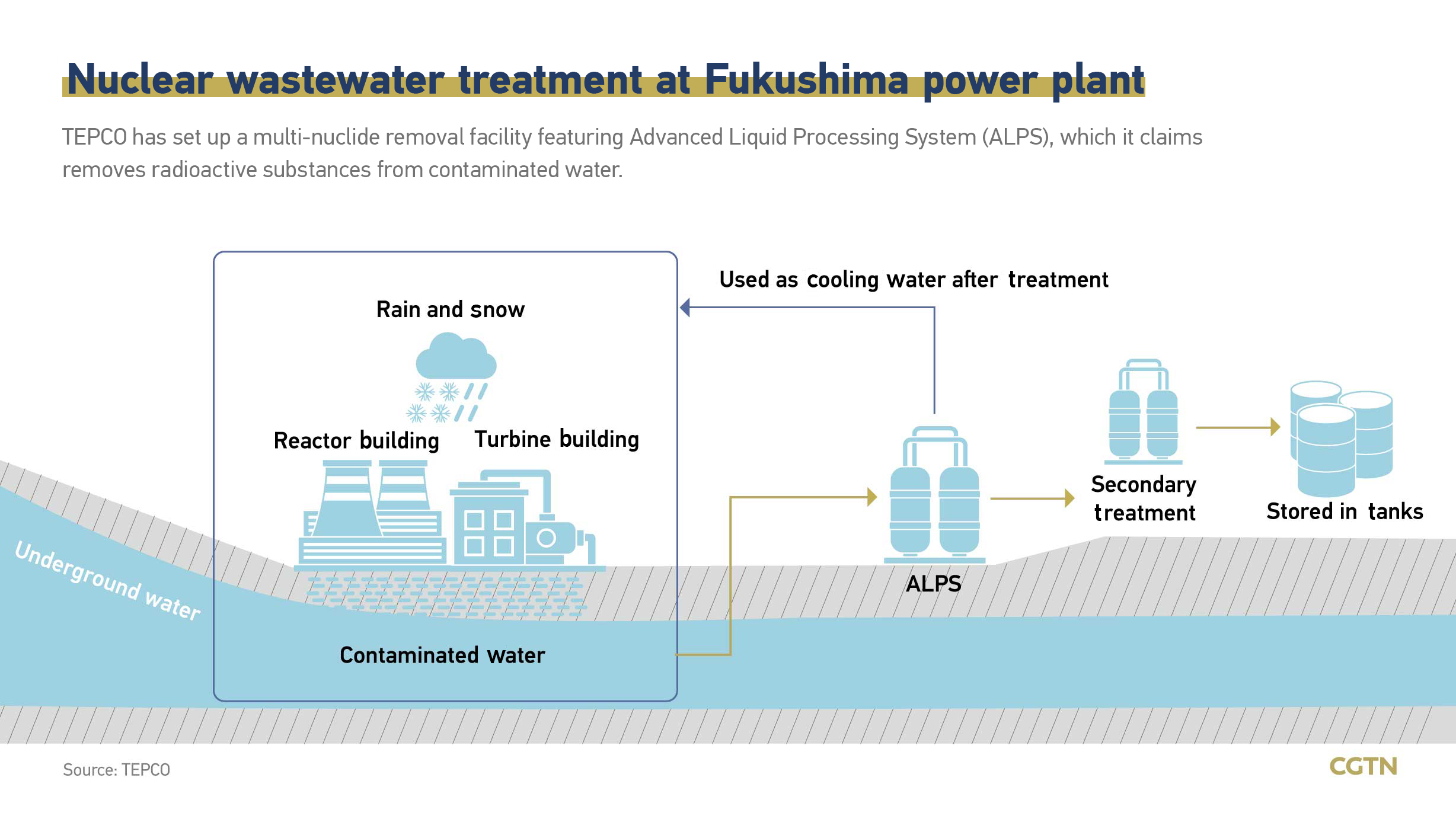01:12

Chinese Foreign Ministry on Tuesday stressed that Japan's unilateral decision to release the nuclear wastewater into the ocean is extremely irresponsible, urging the country to reverse its decision.
Some people in Japan said China and South Korea have lower nuclear wastewater discharge standards than Japan and that based on science, China and South Korea's criticism of Japan is unjustified. Spokesperson Wang Wenbin called these remarks a "distortion of concept" aimed at deflecting attention.
Read more:
Graphics: Why shouldn't Japan dump nuclear polluted water into ocean?
Basic facts to know about Japan's nuclear wastewater dump
S. Korea demands U.S. give evidence supporting Japan's water dump plan
Wang said the nuclear polluted water from the Fukushima plant after the nuclear accident is vastly different from the wastewater produced from regular nuclear power plant operation in terms of their source, radionuclide type and processing difficulty.
He said the liquid waste discharged after the Fukushima nuclear plant accident contains radionuclides, while the liquid effluent typically discharged from nuclear power plants does not directly come in contact with the fuel pellets and barely has radionuclides.

The Japanese government has argued that Advanced Liquid Processing System (ALPS) was capable of removing radioactive isotopes present in the contaminated water. However, Wang warned that the treatment's results need to be further verified.
According to the spokesperson, a report from an organization researching wastewater treatment from the Fukushima nuclear accident shows that as of December 31, 2019, 73 percent of the nuclear wastewater still exceeds Japan's discharge standards after treatment using ALPS.
An article issued by the American Journal of Science on April 13 also said dangerous isotopes with longer radioactive lifetimes, like ruthenium, cobalt, strontium and plutonium, sometimes slip through the ALPS process.
Wang said there are several other options for wastewater disposal but Japan opted for the cheapest plan.
He said the choice was made before seeking consensus with the international community and stakeholders and before exhausting all available options.
"The decision leaves the biggest environmental health and safety risks to the world and passes the responsibility that should be borne by Japan itself to all of mankind, which is extremely irresponsible behavior," Wang said.
The spokesperson urged the Japanese side not to confuse the public under the banner of pseudo-science but to truly uphold a scientific attitude, face up to the international community's questions and objections and earnestly fulfill its international obligations.

